CppCon 2015 C++ on the Web: Ponies for developers without pwn’ing users--JF Bastien
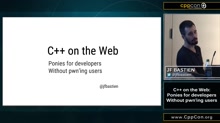 Have you registered for CppCon 2016 in September? Don’t delay – Registration is open now.
Have you registered for CppCon 2016 in September? Don’t delay – Registration is open now.
While we wait for this year’s event, we’re featuring videos of some of the 100+ talks from CppCon 2015 for you to enjoy. Here is today’s feature:
C++ on the Web: Ponies for developers without pwn’ing users
by JF Bastien
Summary of the talk:
Is it possible to write apps in C++ that run in the browser with native code speed? Yes. Can you do this without the security problems associated with running native code downloaded from the net? Yes and yes. Come to this session to learn how.
We'll showcase some resource-intensive applications that have been compiled to run in the browser. These applications run as fast as native code with access to cornerstone native programming APIs—modern C++ STL, OpenGL, files and processes with full access to C++’s concurrency and parallelism—all in an architecture- and OS-agnostic packaging. Then, we'll describe how we deliver native code on the web securely, so developers get their C++ ponies and users don’t get pwn’d. We’ll also touch on the fuzzing, code randomization, and sandboxing that keep the billions of web users safe.

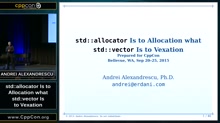 Have you registered for CppCon 2016 in September? Don’t delay –
Have you registered for CppCon 2016 in September? Don’t delay – 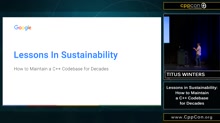 Have you registered for CppCon 2016 in September? Don’t delay –
Have you registered for CppCon 2016 in September? Don’t delay – 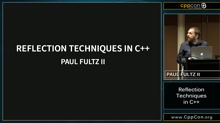 Have you registered for CppCon 2016 in September? Don’t delay –
Have you registered for CppCon 2016 in September? Don’t delay – 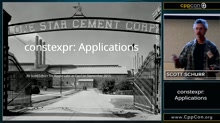 Have you registered for CppCon 2016 in September? Don’t delay –
Have you registered for CppCon 2016 in September? Don’t delay –  Have you registered for CppCon 2016 in September? Don’t delay –
Have you registered for CppCon 2016 in September? Don’t delay –